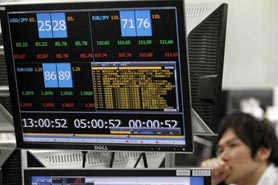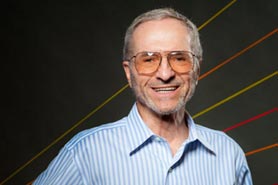- Education
- Quants: The Kings of Wall Street
Quants: The Kings of Wall Street
Is being a good financier enough for making money on trading? The history of Wall Street has shown, that in fact the best specialist of funds management in the world was physicist and mathematician James Simons.
Who are the Quants?

Quants are the people who trade on the stock exchange markets by using the latest technology and sophisticated mathematical and statistical algorithms. They are the new generation of traders of Wall Street who do not analyze financial news and do not forecast the value of the companies, instead, they make algorithms affecting the profitability and reducing the risks. In fact, they are not financiers and economic analysts, but physicists, mathematicians, and programmers.
Basically, the Quants work for large financial institutions and banks, as for high-frequency trading, they require ultra-fast communication channels and high-performance computing.
Attack on Wall Street
High-frequency trading became popular in Wall Street in the 2000s. At that period of time financiers started talking about a new era in the economy: the robots made by Quants were making transactions on the purchase and sale of shares independently, they were following the market and with the help of mathematical methods they were predicting the behavior of stocks rates. In comparison with a human being, robots had a number of advantages: the program could make transactions a hundred times more often, work much better than an individual, make technical analysis of the market. Another great advantage of the program was the absence of emotions inherent to people, which periodically did harm to traders.
A while later, after the great enthusiasm, traders noticed the disadvantages of robots. The participants of Wall Street soon realized that they affect the pricing negatively by setting a lot of orders and changing the price several times per second. Soon, most of the world’s markets introduced tax on the robots. But the main danger in the performance of robots became the failure of programs, which could bankrupt large companies in case of the absence of human’s modern intervention. Now, the Departments of Treasury of UK and US are struggling with this phenomenon.
Famous Quants

The first genius, who found out that with the help of mathematical skills it was possible to earn millions on Wall Street, was Edward Thorp, who, in the 1950s, used his scientific knowledge for “hacking” the blackjack and drew an analogy between gambling and investment business. In the end of the 1960s Thorp was using his knowledge of probability and the statistics of the stock market, and by detecting and exploiting many anomalous evaluations in the stock exchange markets, he earned a lot of many.
One of the most successful hedge fund managers is considered to be 77 – year - old James Simons, who was given the nickname “Quant King” by his colleagues and journalists. In 1974, the former teacher of mathematics invested $600 thousand in commodity futures with his partners. At that period of time, the prices of sugar futures raised and after seven months novice investors earned $6 million. In 1978, Simons founded Monemetrics, an investment company, which was the predecessor of Renaissance. His idea was to use mathematical models in currency trading. Mathematical models have been improved over ten years, and in 1988 Simons and James Ax, his colleague from the University founded a hedge fund company, which was called Medallion. The 1990s were successful years for Medallion. In its 11 years of existence, the fund, where 148 people were working, demonstrated 43.6% annual average income. According to Forbes, his current fortune is estimated to be $14 billion.
Ken Griffin, is considered one of the most successful traders of our time. He founded a hedge fund, which today controls assets worth $26 billion, the 6 billion of which is Griffin’s own fortune. He gave the dominant role to the mathematical methods in the performance of Citadel. Like James Simons, he trusts trading conducted through computers, the programs of which are created by mathematics and physics.
Next page